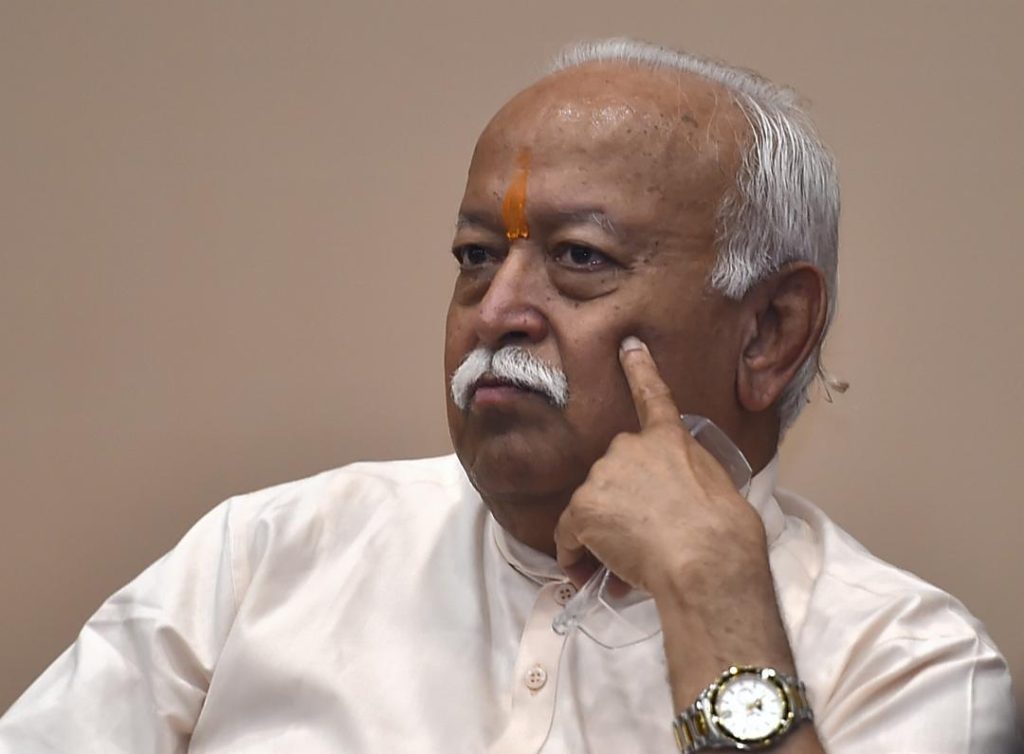
Title: It’s no surprise even if Indian economy hits $3 trillion, many nations are rich: Bhagwat
The Reserve Bank of India (RBI) has projected that India’s economy is likely to reach the milestone of $3 trillion in the near future. While this is a significant achievement for the country, RSS chief Mohan Bhagwat has a different perspective on what this achievement truly means. In a recent statement, Bhagwat said that it won’t be a surprise even if India’s economy hits the value of $3 trillion because multiple nations are already rich. However, he also emphasized that the world doesn’t recognize India’s spirituality and religion, which he believes is the key to becoming a world leader.
Bhagwat’s statement has sparked a lot of interest and debate, with many people wondering what he meant by his comments. Some have interpreted his statement as a sign of disappointment or disillusionment with the country’s economic growth, while others have seen it as a reflection of a deeper concern about the values and priorities of modern society.
To understand Bhagwat’s perspective, it’s essential to consider the broader context in which he made his statement. India has been making rapid economic progress over the past few decades, with its GDP growth rate consistently ranking among the highest in the world. The country has also made significant strides in terms of technological advancements, infrastructure development, and human capital formation.
Despite these achievements, Bhagwat’s comment suggests that he believes that India’s economic growth is not the only factor that determines its status as a world leader. He emphasized that the world doesn’t recognize India’s spirituality and religion, which he believes is the key to becoming a world leader.
Bhagwat’s statement is not without merit. India has a rich cultural heritage and a strong spiritual tradition that has been a source of inspiration and guidance for millions of people around the world. The country’s spiritual leaders, such as the swamis and gurus, have played a significant role in shaping the country’s values and priorities.
However, Bhagwat’s comment also raises some important questions. What does he mean by “spirituality and religion”? Is he suggesting that these are the only factors that determine India’s status as a world leader, or are they just one part of a broader set of factors?
Furthermore, Bhagwat’s comment also raises questions about the nature of economic growth and development. Is it truly possible for a country to achieve economic growth without also developing its spiritual and religious dimensions? Or are these two goals mutually exclusive, and does one have to come at the expense of the other?
In order to answer these questions, it’s necessary to consider the broader context in which Bhagwat made his statement. India has been facing a number of challenges in recent years, including rising inequality, corruption, and environmental degradation. These challenges have been exacerbated by the country’s rapid economic growth, which has led to a growing sense of discontent and disillusionment among many Indians.
Bhagwat’s comment suggests that he believes that India’s economic growth is not the only factor that determines its status as a world leader, and that the country needs to focus on developing its spiritual and religious dimensions in order to achieve true success. While this is an important message, it’s also important to recognize that economic growth is a necessary condition for achieving many of the goals that Bhagwat has outlined.
In conclusion, Bhagwat’s statement is thought-provoking and worthy of consideration. While it’s true that India’s economic growth is not the only factor that determines its status as a world leader, it’s also important to recognize the importance of developing the country’s spiritual and religious dimensions. Ultimately, the key to achieving true success lies in finding a balance between these two goals, rather than trying to choose between them.






